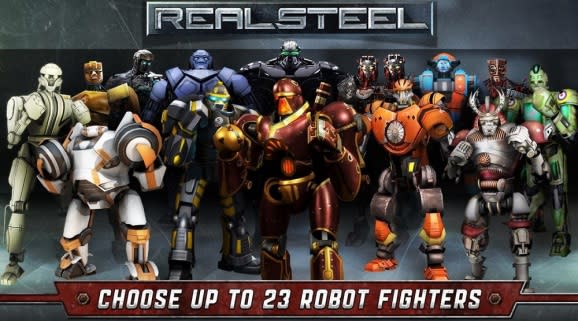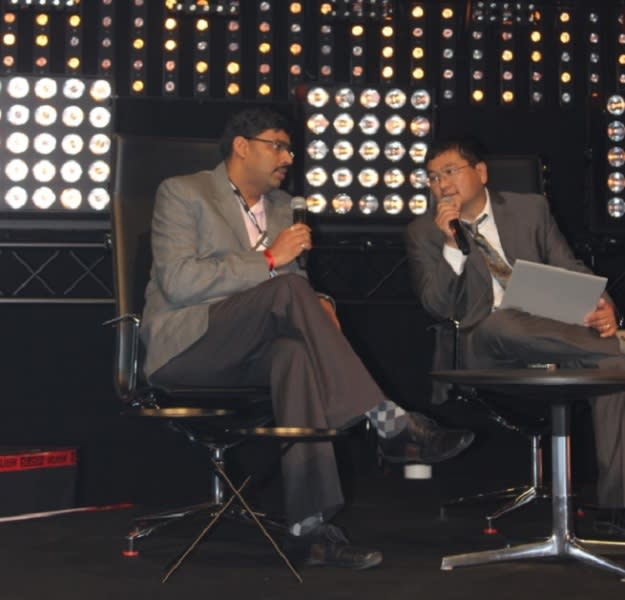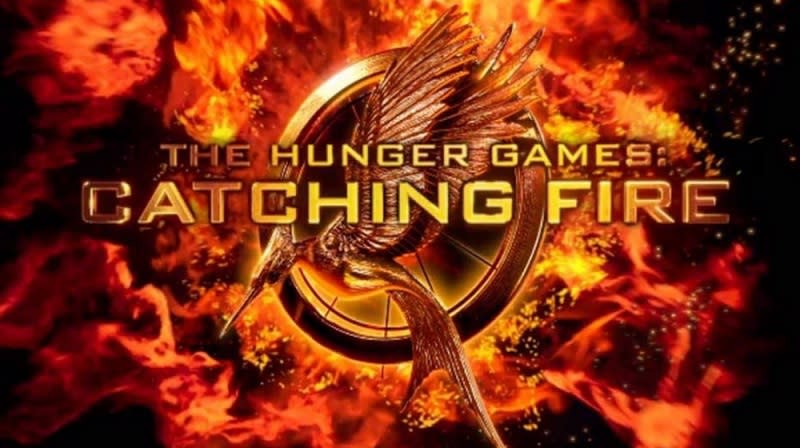How India’s Reliance Games is using movies to become a global mobile game publisher (interview)

Disclosure: The organizers of the Slush 2014 paid my way to Helsinki. Our coverage remains objective.
HELSINKI — Reliance Games is one of the biggest mobile games companies you’ve never heard of. But it has worked with some of the world’s leading brands and turned movies like The Hunger Games: Catching Fire and Real Steel into mobile games. The latter has seen more than 50 million downloads to date, and that puts India-based Reliance Games in the big leagues.
I interviewed Manish Agarwal about Reliance’s rapid rise as a mobile game publisher and the state of the mobile gaming market in India at the Slush 2014 conference in Helsinki last week. While Indian game companies haven’t made a huge mark on the global stage, Agarwal’s Reliance has built a studio with 200 developers and a focus on movie-based games based on deals with big Hollywood studios. He’s bullish about mobile gaming’s future, especially in emerging markets like India. But Agarwal’s ambitions are global, and he’s looking to acquire Western game studios.
Here’s an edited transcript of our onstage interview at Slush 2014.
Above: Reliance Games CEO Manish Agarwal [left] at Slush 2014 with GamesBeat’s Dean Takahashi.
Image Credit: Slush 2014
GamesBeat: Can you tell us about Reliance?
Manish Agarwal: We work with many big Hollywood studios. We have developed a number of games. Our first was Real Steel World Robot Boxing. Then we have gone with a number of studios to bring their IP into the mobile gaming space. Last year we did a successful Hunger Games game.
What we understand is branding and intellectual property. One of the reasons why we took that road is something we were talking about earlier regarding the discovery of games. It’s a big issue for developers and players. IP helps us a lot in that regard.
We publish games globally. Europe and the U.S. are our biggest markets.
GamesBeat: Tell us about how successful Real Steel has been. It’s drawn a large number of downloads.
Agarwal: One of the things we’ve done with Real Steel — the movie came out three years back, and we still have our games live on the App Store and other operating systems. We have more than a million daily active users playing the game. That’s been one example of building a franchise. More than 50 million downloads have taken place across Android and iOS for the Real Steel franchise. If you look at all the combined franchise activity, very few companies have been able to create sequels that are successful across the same IP.
GamesBeat: Why is the timing right now for branded IP?
Agarwal: There are hundreds of games being uploaded every day to the different app stores. Discovery of games is our biggest need. Just getting featured by Apple or Google is not a sustainable model. The game has to have something in it. When it comes to discovery of a game, IP is a big help.
For example, when we launched Hunger Games, in the first day, we got three or four million downloads. Discovery wasn’t a problem for us. When you think about the basic economics of a dollar or two dollars in cost per user acquired, that’s the kind of cost savings that can be really helpful. That’s where branded IP works well.
One area where we also see a financial opportunity, an alternative form of monetization, is brand sponsorships. The problem with incorporating monetization into your game design is that it can often fall flat. If you take advantage of brand sponsorships, you can find an alternative method of covering your costs. That’s another way to make use of branded IP.
GamesBeat: What have you figured out is your specialty? You have 200 people, which is a lot. What are you focused on?
Agarwal: So far, freemium mobile gaming is where everything is. We don’t do paid online gaming or console or PC. We stick to freemium mobile games. Two years back we understood that the launch of a mobile game is the beginning of the problem. It’s not the end of the problem. We understand a great amount of data and analytics-based consumer understanding, putting that together into a live operation and running a game as a service. That’s our specialty.
We don’t necessarily get disheartened when we see a game where the key performance indicators (KPIs) are not really making sense. We go back to the drawing board, look at what needs to be done, and come back with more resilience to solve the problems. Running a game like that is what we do.
Above: Reliance Games’ made a Hunger Games mobile game.
Image Credit: Reliance Games
GamesBeat: India as a country doesn’t have a rich tradition in video games as Japan or the United States do. What has it been like starting this up where gaming is relatively young?
Agarwal: India traditionally hasn’t had many devices to play with. Overseas you had an evolution through console and PC. India has gone over console and PC straight to mobile. Today we have 10 to 12 million smartphones being sold every month. We have 550 million unique mobile phones in the country. Last year it was 50 million smartphones sold. This year we’re on track for 100 million sold. The next two years will see 300, 350 million smartphones sold in India.
The number three activity on smartphones, behind Facebook and WhatsApp, is gaming. People are playing games and downloading games. Around 45 to 50 million games are downloaded every month. It’s a huge explosion in gaming. The basic reason is the affordability of devices, from about $100 devices to anything at the high end is the Android ecosystem. That’s driving the whole gaming market in India.
Three years ago, China was where we are today, with an explosion of gaming in progress. All the indicators are right, whether it’s about consumers being willing to pay online — you must have seen that we have billion-dollar e-commerce deals happening in India. Consumers are spending online. Devices are reducing friction. Data prices are coming down. These are all indicators of good monetization to follow. I’m confident that India will be the flavor of the season within 18 to 24 months. It will change like we saw China completely change in the last three years.
GamesBeat: You’ve divided your company into teams focused on worldwide branded games as well as Indian products. Can you tell us more about what you’re working on for your home market?
Agarwal: India is a unique market. The constraining factor is internet speed. Your game design, development cycle, app size, everything is different from a global point of view. The type of gamer is very casual, too, if I may say. We have a lot of first-time gamers coming in and trying to play very casual games in short sessions over multiple sessions. We try to produce a simple, snappy kind of product for them. The mid-core audience that’s looking for a more dense and involving experience online, that kind of audience really doesn’t exist. The expectation of quality, the expectations around graphics and gameplay, that’s all very different. That’s why we divided the team in the way we did.
GamesBeat: You’re also looking to acquire other companies. Can you tell us about that?
Agarwal: We’ve seen success in a number of genres, one after the other. But one thing we’ve seen in other games and our analysis of them is that retention is a big issue. Casual players wander into the market and they play your game and then they move on. We’re looking at IP and we’re looking at the kind of genres that can lead to large retention. If we get better at that, we can look at forming relationships with our gamers. We’re looking at studios that are still waiting for that first hit, but they understand what has to be done. We want to work with them in these genres.





